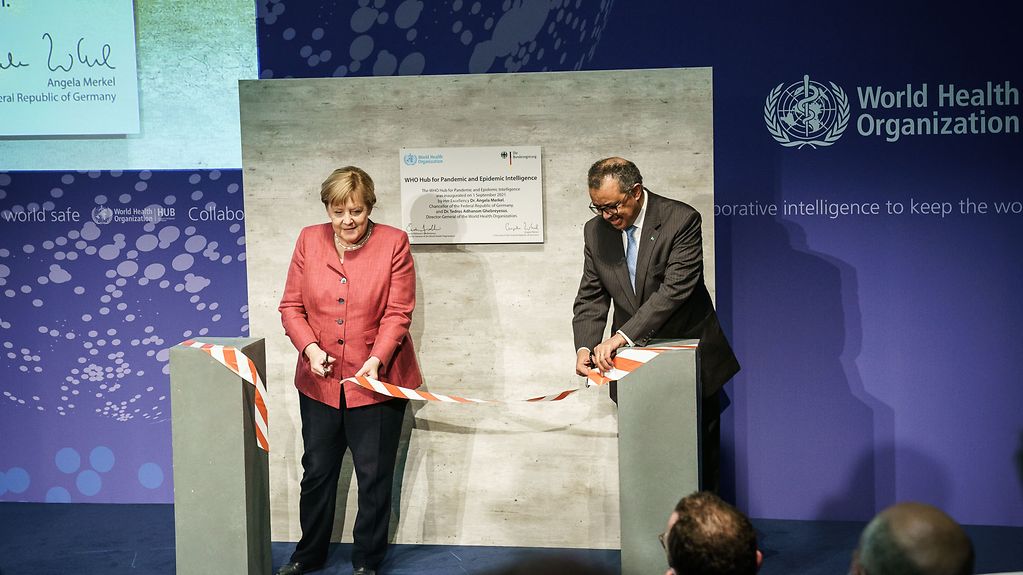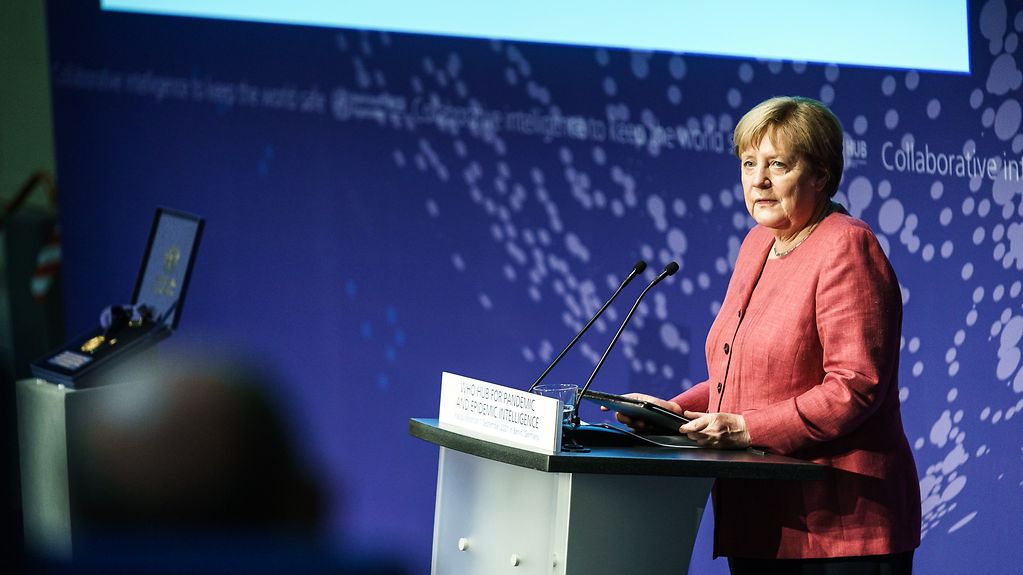WHO Hub inaugurated in Berlin
Detecting and preventing pandemics at an early stage – this is the aim of the WHO Hub for Pandemic and Epidemic Intelligence which was inaugurated in Berlin. The new centre operated by the World Health Organisation will collect and analyse data worldwide – as the Federal Chancellor said at the opening, this was a “sign of hope” in difficult times.
2 min reading time

Federal Chancellor Merkel opened the new hub in Berlin together with WHO Director Tedros Adhanom Ghebreyesus
Photo: Federal Government/Denzel
“The aim is to be better prepared for future epidemics and pandemics,” stressed Federal Chancellor Angela Merkel at the inauguration of the new WHO centre. Based on the experience gained in the coronavirus pandemic, “new lessons have to be learned” on how to respond to pandemics in the future, she said, adding that the pandemic had shown “how much we are capable of achieving when we join forces”. Experts around the world had expanded their knowledge at an impressive speed, she said, sharing it repeatedly so as to contribute to an understanding of the coronavirus.
Sharing insights worldwide
Based on this approach, the World Health Organisation centre aims to collect, collate and evaluate data on a global scale. As the Federal Chancellor explained: “The findings generated by the centre are to be shared among all countries.”
According to Merkel, Berlin is an “excellent location” for the new WHO Hub, where it will be able to draw on the expertise of renowned institutions such as the Charité, the Robert Koch Institute and the Hasso Plattner Institute. The aim is to enable better networking, data collection and data collation by researchers so that they are able to advise countries in the event of a pandemic.

At the inauguration of the Hub, Federal Chancellor Merkel was also presented with the WHO’s Global Leadership Award for outstanding services to global healthcare
Photo: Federal Government/Denzel
The WHO Hub for Pandemic and Epidemic Intelligence is designed to help detect future pandemic outbreaks at an early stage and prevent them. For this purpose, data is collected and evaluated, and the latest findings are collated. Partners of the international hub include the Charité university hospital Berlin, as well as the Robert Koch Institute and the Hasso Plattner Institute.
WHO – the ultimate authority on global health
Merkel also stressed the importance of the World Health Organisation: the pandemic had “demonstrated how much we need the World Health Organisation,” she said, adding that it was “the ultimate authority on global health”. This was why its financing had to be based on a solid and reliable foundation, said Merkel. After all: “The WHO can help us identify threats to public health at an early stage.” The new WHO centre in Berlin also reflected Germany’s appreciation for the work done by the World Health Organisation, said the Federal Chancellor.